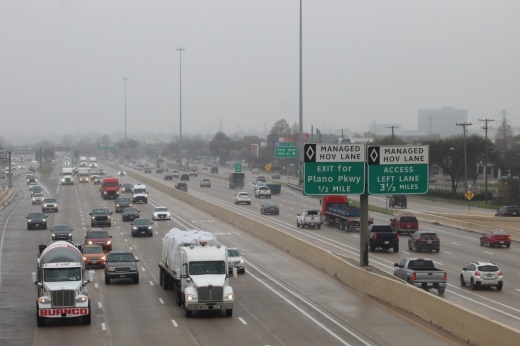What’s happening?
The North Central Texas Council of Governments intends to apply for a federal grant after action from the Regional Transportation Council during an April 11 meeting. If awarded, the grant funds would be used to create a smartphone application that would offer incentives to change travel behavior on the following corridors:
- US 75
- I-635E
- I-35W
- I-35E
- I-30
Quote of note
“Think of this as just the pilot corridors that have the best chance of winning,” Transportation Director Michael Morris said. “If they have the best chance of winning and we fail in these corridors, then it’s not a good program we can take to the rest of the region. If we’re successful in these corridors, then I would take it to all the corridors.”
A closer look
For the project, staff selected congested corridors in the region that have other transit modes available for people to shift to, Senior Program Manager Natalie Bettger said. The proposed smartphone application would offer incentives for people to change their method of travel, such as shifting to public transit.
“We think using these corridors gives us an opportunity to get people to shift out of driving by themselves in their vehicle or possibly shift the time of day in which they’re traveling on those facilities,” she said.
The proposed app would focus on incentivizing shifts to transit vehicles that travel in managed lanes or shifts to what time a person travels, according to the staff presentation.
With the app, staff from the NCTCOG can verify if users switch their method of travel or shift their time of travel to outside peak hours, Bettger said.
“There’s a lot of flexibility by using that type of technology in terms of what facilities we want to focus on [and] what types of incentives we want to offer,” she said. “That’s why this program gives us an opportunity to test that out, to see what kind of impact we can have on congestion within our region.”
Remember this?
Dallas-Fort Worth accounted for 39 roads among a list of the state’s 100 most congested roads in 2022, according to a report from the Texas A&M Transportation Institute. Portions of US 75, I-635, I-35E, I-35W and I-30 were listed in the report.
Road congestion was estimated to cost Texas drivers more than $1.2 billion in 2022. Portions of the Woodall Rodgers Freeway and US 75 were among the most congested in the state.





